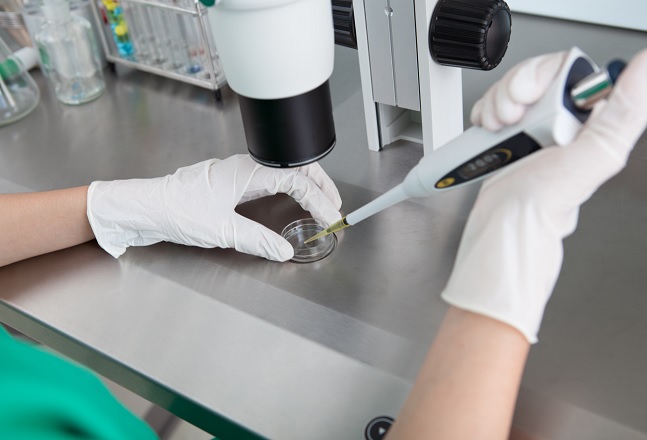Intracytoplasmic Sperm Injection (ICSI) What Are the Risks?
Although many people believe infertility is a “woman’s problem,” 30 percent of infertility is related to male factor problems.

If your partner has been diagnosed with male factor infertility, your fertility specialist may recommend intracytoplasmic sperm injection (ICSI) as part of your IVF treatment. What is ICSI, and what are the risks and benefits?
ICSI and IVF
In vitro fertilization, known as IVF, is the fertilization of a woman’s egg in the embryology laboratory. If the male partner has a good sperm count and his sperm are healthy, show good motility (swim well), and don’t have problems with shape that would prevent the sperm from penetrating the wall of the egg, often the lab technician will simply put the sperm in the dish with the egg and let “nature” take its course in the lab. When severe male factor is present, the lab can perform ICSI. With ICSI, even men with severe infertility problems may be able to have a baby. The embryologist will inject the male partner’s sperm directly into the egg, fertilizing the egg. This bypasses problems with low sperm counts, with blockages that keep sperm from coming out, and with sperm motility and shape. ICSI can increase IVF success rates when there is a significant male factor.
Risks of IVF with ICSI
While fertilization rates of IVF with ICSI can be as high as 50 to 80 percent, not all fertilized eggs will develop into healthy embryos. Depending on the woman’s age, some or many of the eggs may be abnormal and the fertilization may result in an abnormal embryo. Rarely eggs are damaged in the procedure. There is also a theory that ICSI allows less healthy sperm to fertilize an egg, which may result in defective embryos which do not develop and grow. With natural conception, these sperm would never be able to fertilize an egg.
The risk of birth defects in children conceived with IVF and ICSI is about the same as that of children conceived naturally. The risk of an ICSI-conceived child having birth defects is very low, less than one percent. Long-term studies have found some specific risks of birth defects, which may be due to lower quality sperm, including sex chromosome abnormalities, defects in the urinary system or genitals, and other rare syndromes. But, again, the chance of this happening appears to be very low.
Another risk of ICSI is actually a risk of IVF itself—increased chance of multiple births versus natural conception. By carefully controlling the number of embryos transferred to the female partner’s uterus, this risk can be minimized. Multiple births, defined as twins or more, carry a higher risk of complications to both the mother and the babies. High-multiple births of triplets or more are extremely rare and much more apt to have complications than twin births.
The Benefit is a Baby
If your reproductive endocrinologist recommends ICSI, ask why it’s necessary and what the risks and benefits are. IVF with ICSI makes it possible for thousands of couples around the world to have a baby when the male’s fertility issues normally would prevent natural conception. Find out whether it’s the right treatment for you and your partner.
 If your partner has been diagnosed with male factor infertility, your fertility specialist may recommend intracytoplasmic sperm injection (ICSI) as part of your IVF treatment. What is ICSI, and what are the risks and benefits?
If your partner has been diagnosed with male factor infertility, your fertility specialist may recommend intracytoplasmic sperm injection (ICSI) as part of your IVF treatment. What is ICSI, and what are the risks and benefits?
 If your partner has been diagnosed with male factor infertility, your fertility specialist may recommend intracytoplasmic sperm injection (ICSI) as part of your IVF treatment. What is ICSI, and what are the risks and benefits?
If your partner has been diagnosed with male factor infertility, your fertility specialist may recommend intracytoplasmic sperm injection (ICSI) as part of your IVF treatment. What is ICSI, and what are the risks and benefits?
 If your partner has been diagnosed with male factor infertility, your fertility specialist may recommend intracytoplasmic sperm injection (ICSI) as part of your IVF treatment. What is ICSI, and what are the risks and benefits?
If your partner has been diagnosed with male factor infertility, your fertility specialist may recommend intracytoplasmic sperm injection (ICSI) as part of your IVF treatment. What is ICSI, and what are the risks and benefits?



